Kesha’s Highly Publicized Trial Could Spark Sexual Assault Victims To Come Forward
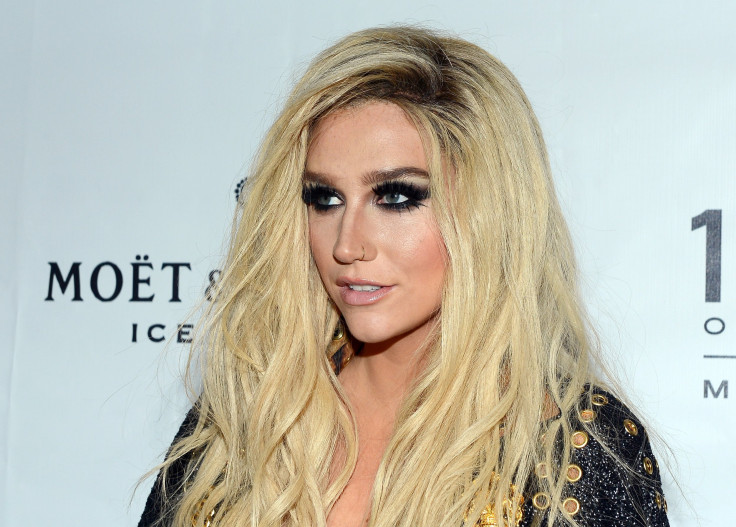
Lizbeth Conboy was 20 years old when she was raped. She was asleep when a stranger broke into her room and assaulted her.
For years, Conboy didn’t talk about the assault, worried that if she did, people would look at her differently and avoid eye contact. But as Conboy began to share with school groups and hospital staff what happened to her in 1995 while she was a student at Bucknell University in Pennsylvania, she said she felt empowered that a once-taboo topic was increasingly becoming part of mainstream conversations. Last year, when she saw New York Magazine’s cover featuring 35 women accusing Bill Cosby of sexual assault, the powerful image nearly brought her to tears.
“The biggest fear of a rape victim is no one will believe me … in the Bill Cosby case, as soon as one, two, three, then four women came out, the next thing you know there were dozens, and as a survivor, you realize you are not alone,” said Conboy. “These things happen and when you have people like that coming out, it almost normalizes talking about it enough that victims can say, ‘yes, this happened to me, too.’”
On the heels of Lady Gaga’s thought-provoking Oscar performance, a Best Picture nab for “Spotlight” and the high-profile, public trial of pop star Kesha Rose Sebert and producer Lukasz “Dr. Luke” Gottwald, the topic of sexual assault has been thrust into the limelight now more than ever before, experts said. Advocates for sexual assault victims have predicted that an uptick of cases will occur, as more victims feel emboldened to come forward. Negative press and social media attention on high-profile allegations that turn out to be false, however, could deter some victims from reporting their own cases.
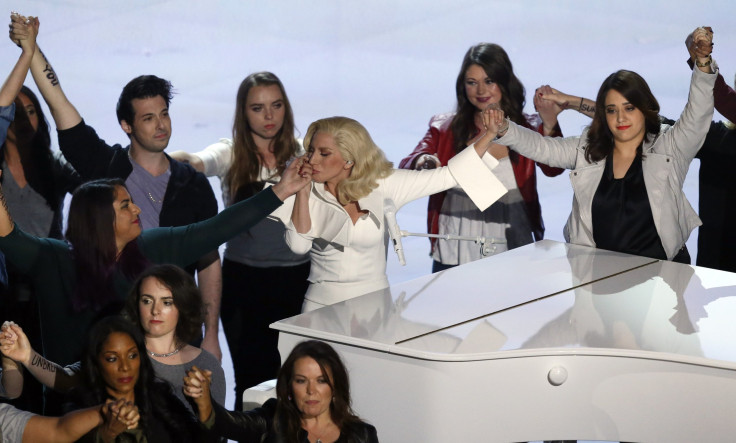
“I think there is greater public knowledge and greater public awareness [about sexual assault], and I think that is a good thing and will help support victims, especially when high-profile people show serious support for it,” said Sean Black, communications coordinator at the Illinois Coalition Against Sexual Assault. “I do think that has a positive impact on our society and changing rape culture and the thoughts of the younger generation. What you’re trying to do is change the mind of the 15-year-old and not the 60-year-old, and that’s what we hope it does.”
In recent weeks, the media — and music industry’s — focus has zeroed in on Kesha’s trial. In 2014, Kesha sued producer Dr. Luke, seeking to void their contracts and alleging that he had "sexually, physically, verbally, and emotionally abused [Kesha] to the point where [she] nearly lost her life." Last week, a New York judge denied Kesha a court injunction that would have allowed her to record new music without her record label and Dr. Luke. After the court’s decision, Kesha received an outpouring of public support from mega-stars like Taylor Swift.
“Kesha’s case being as public as it is and having other high-profile celebrities backing her up, it will affect young women,” said Kristen Houser, chief public affairs officer for the National Sexual Violence Resource Center in Enola, Pennsylvania, and the Pennsylvania Coalition of Rape. “They are their role models, and they are encouraging one another to be brave and bold.”
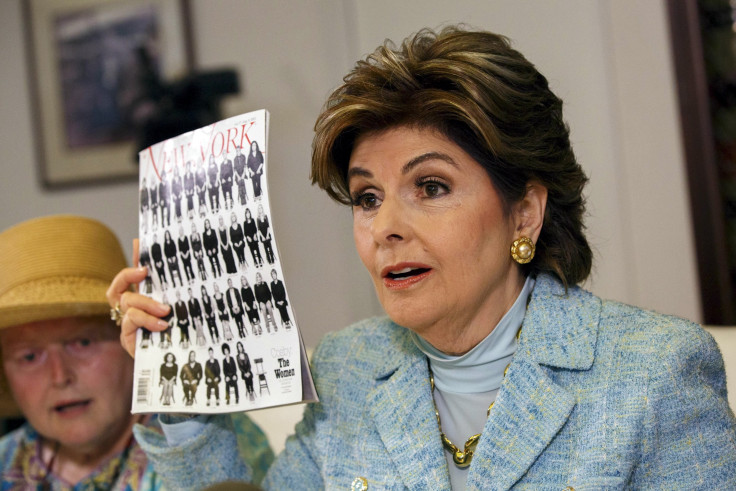
While experts said it was too early to have data on how Kesha’s trial might have affected the number of victims speaking up about their own cases, Bill Cosby’s highly publicized scandal — in which 50 women have come forward, accusing him of drugging and/or sexually assaulting them — seemed to have a trickle-down effect. New York City saw a spike in reported rapes, up 5.3 percent, in 2015, which was largely driven by crimes that occurred up to 30 years ago but were being reported for the first time. New York City’s Police Commissioner Bill Bratton called it the “Bill Cosby” effect.
In New Jersey, reported rapes increased from 33.8 percent from 2014 to 2015, an uptick that local advocates said was driven by the intensified media coverage of Cosby's case. In the first few days after a video surfaced in 2014 of NFL player Ray Rice assaulting his partner, Bryan Pacheco, director of public relations for Safe Horizon, a nonprofit victim services agency in New York City, said the agency The National Domestic Violence Hotline received a spike in calls as much as 84 percent, with and for those that called Safe Horizon’s domestic violence hotline people specifically cited that video as a factor in their decision to come forward.
“We’ve seen a watershed of these cases piling on one another over the past few years; the Bill Cosby case, campus sexual assaults … this has become a very common thing in press, and I’ve been working in this field for 26 years, and this has never happened,” said Houser. “There’s a positive spin to that … it can really help eliminate shame and isolation.”
Kristin Yorke, 42, is a stay-at-home mom living in Brooklyn who volunteers as a Survivor Speaker at the Mt. Sinai-based rape crisis program in New York City. She was raped in New York City’s Greenwich Village in 1996, and for her, knowing other survivors who have been raped by a stranger, is like "piecing together a shattered image"of herself.
“I think one of the best ways to encourage survivors to report is for them to feel supported and heard and believed, and for there to be less victim-blaming and more a culture of ‘it's not your fault’ where any kind of sexual violence is concerned,” said Yorke. “We're seeing this supportive reaction to Kesha, and Gaga's Oscar performance was so powerful- seeing those survivors on stage, reclaiming themselves in such a public way, that was powerful. That made me cry, actually.”
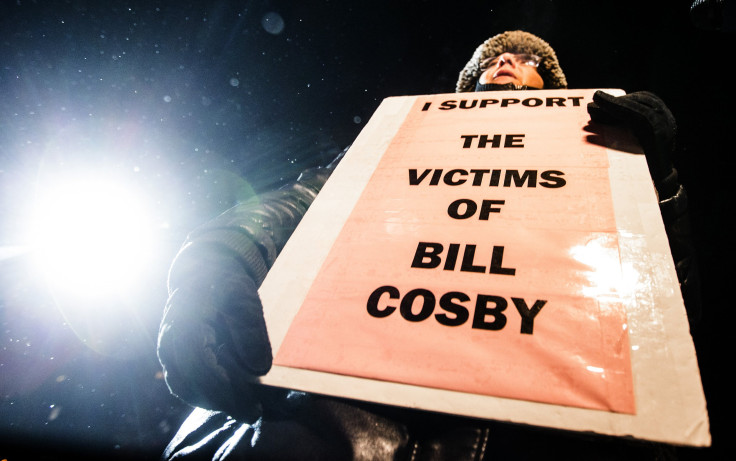
One out of every six American women has reportedly been the victim of an attempted or completed rape in her lifetime, and about one in 33 American men have experienced such assaults. Still, sexual assault remains one of the most underreported crimes. An average of 68 percent of sexual assaults in the last five years were not reported, according to a survey taken from 2008 to 2012.
“We do know sexual assault is drastically underreported, and there are a lot reasons why people do not report. The perpetrator is often known to the survivor, safety is concerned, and there are a lot of barriers to reporting,” said Jennifer Wyse, a social worker that works with survivors of sexual assault and domestic violence at Safe Horizon.
While high-profile cases of sexual assault victims coming forward often embolden victims to speak about their own cases, thrusting victims into the spotlight can also act as a double-edged sword if the victim receives a negative response from the public or are found to be lying.
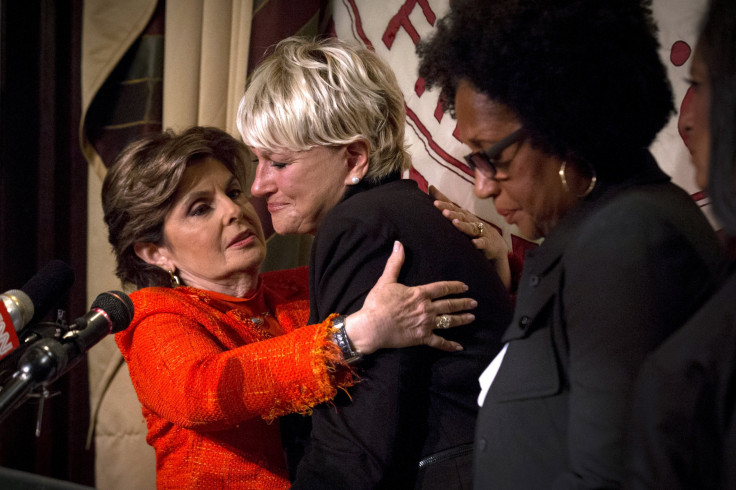
“I think that any time there are messages like that in the media, ‘victim blaming’ messages, of course people can be afraid of coming forward,” said Wyse. “We know that the number of false reports is very small, 2 to 8 percent, and to highlight a case that was indeed false and make that so huge and amplified, we know that’s not the reality of the situation, and that the large majority of the people that come forward are telling the truth.”
While strides have been made in providing support and bringing sexual assault into the spotlight, there is more to be done, especially on college campuses, activists argue. That's the main theme in Jon Krakauer’s book, “Missoula: Rape and Justice System in a College Town.” In the widely popular book, Krakauer presents stories of multiple rape victims and their struggles to find justice. After an event Tuesday night at Brooklyn Public Library, Krakauer signed books for a long line of fans, many of them women. A number of those women, Krakauer said, revealed to him that they had been rape victims themselves, some of which said they have yet to report their own cases.
“I don’t know if a tipping point in our culture has been reached yet, and I think it will come at some point, when women don’t feel so ashamed for something that is not their fault,” said Krakauer. “[We need] to keep encouraging victims to come forward and pressure administrators to open records. This needs to be out of the shadows, and we are a long way from that.”
© Copyright IBTimes 2024. All rights reserved.






















